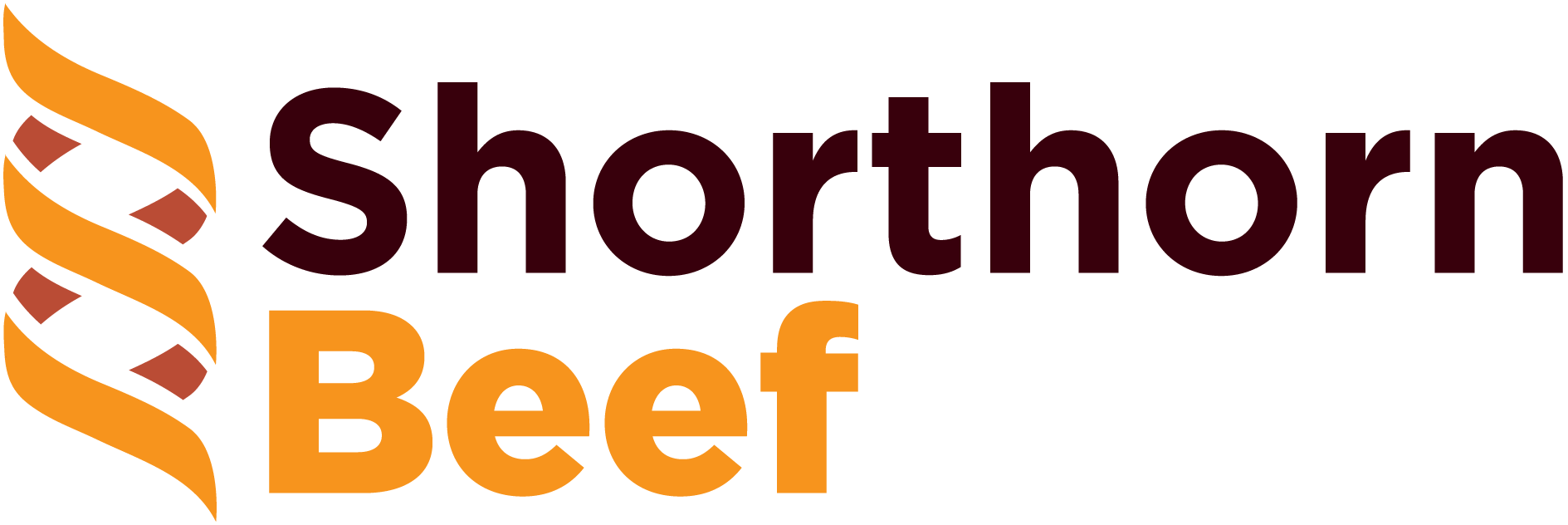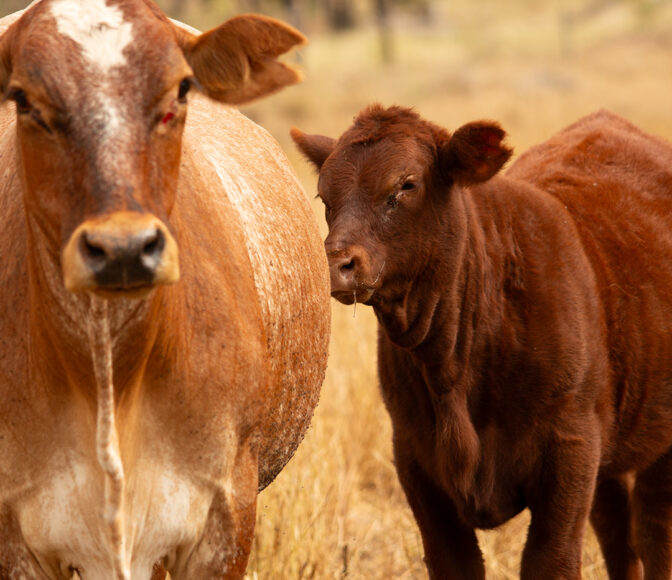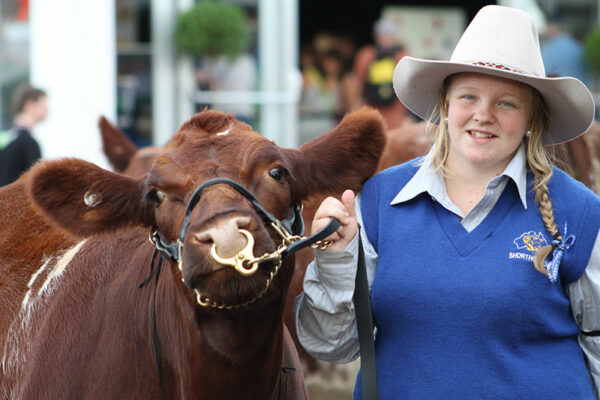Myostatin E226X
Myostatin (GDF-8) is essential for proper regulation of skeletal muscle mass. Mutations make the myostatin gene inactive, resulting in variation from normal phenotypes, including muscle hyperplasia and muscle hypertrophy. Myostatin mutated genes are known to be present in many breeds of beef cattle.
There are 6 known disruptive Myostatin genes in cattle that are responsible for expressing increased muscle growth; (nt821) del 11, Q204X, nt419, E226X, C313Y, E291X. The E226X mutation is the one known to exist within the Shorthorn population.
Animals that are homozygous for the E226X mutation have a loss of function caused by a G to T transition at position 676 in their DNA. This causes truncated protein due to a premature stop codon in the N-terminal latency associated peptide. Whilst it is known to be a disruptor gene, there is little available research to demonstrate the specific phenotypes that may be affected by the E226X mutation.
Variations in phenotypes in animals, known to be homozygous for similar disruptor genes, have include increased birthweights, increased dystocia, reduced organ size, reduced ability to lay fat, reduced marbling, improved beef tenderness, increased retail beef yield, poorer temperament, hyperplasia (an increase in the number of muscle fibres), and/or hypertrophy (an enlargement in the size of muscle fibres).
In many cases, one form of the Myostatin mutation (heterozygous), is often considered beneficial, as it may increase yield without having a limiting effect on maternal traits. In disruptor Myostatin mutations however, two forms (homozygous) are largely considered unfavourable. This has made it difficult for these heterozygous mutations to be exploited more in the overall beef industry. Further, all progeny of an animal that is homozygous for a disruptive Myostatin mutation, will be carriers of at least one form of the gene.
In the case of heterozygous animals that may be mated together, the outcome will be 25% of progeny that are free of the gene, 50% of progeny that are heterozygous for the gene and 25% that will be homozygous.
In the case of the Myostatin mutation E226X particularly, it is currently unclear exactly what phenotypic variation breeders can expect from homozygous carriers. With the exception of potentially reduced organ size, all other phenotypes have been actively recorded within Shorthorn Group Breedplan or are appraised during routine management such as temperament traits. This means that animals expressing phenotypes that are considered to be negative to the desired production levels of the industry, are unlikely to be heavily used within any population.
It is important to remember that not all heavily muscled animals are carriers of a Myostatin mutation. These animals may have been unreasonably discounted in the past, a DNA test will help to clarify this in future.
Testing for the E226X Myostatin mutation is easily achieved through SNP based DNA testing. There are two options available should you wish to test any other animals in your herd. The E226X test is part of the Shorthorn Standard bundle which costs $55 per head inc GST for TSU samples and also includes a GGP 50K, Parentage and Poll Testing. If preferred, an animal can be tested as a standalone request and this will cost $35.20 inc GST. Testing is available through the Shorthorn Beef office, should you have any concerns regarding the status of any animal.
If you have any concerns, the Fact Sheet below will answer many of the common questions, or contact the Shorthorn Beef office.



